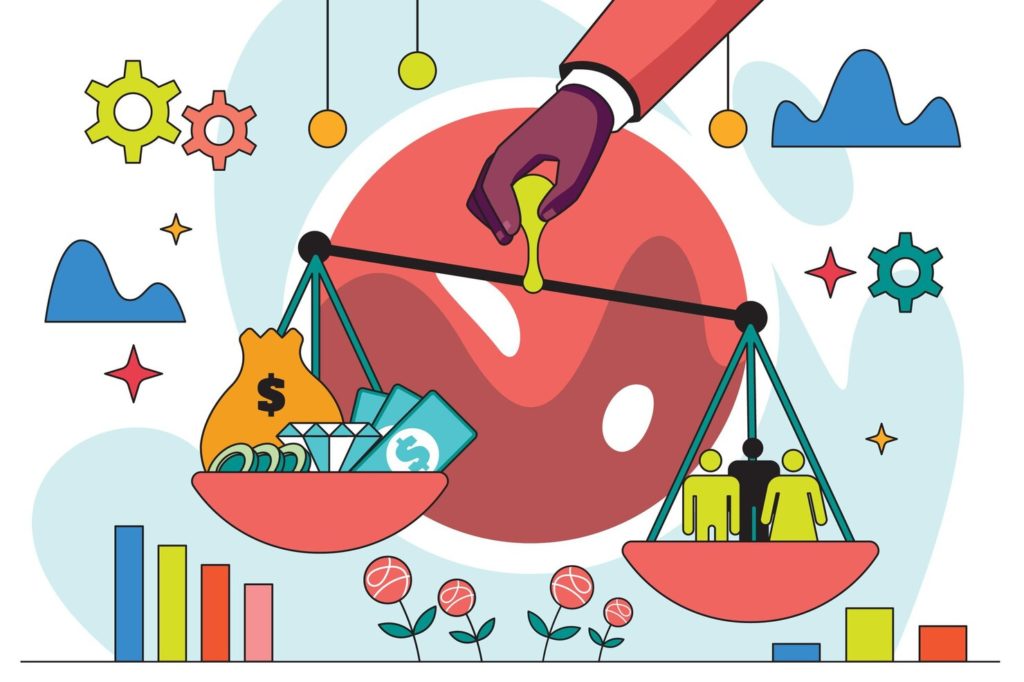It is true that every generation has unique characteristics in all facets. Various generations have viewed love, respect, communication, politics, attitude toward education, desiring riches, and other things through different lenses. Starting at the beginning of the 1900, generations have generally been divided into the following categories:
- The Greatest Generation – born 1901 – 1924
- The Silent Generation – born 1925 – 1945
- The Baby Boomer Generation – born 1946 – 1964
- Generation X – born 1965 – 1979
- Millennials – born 1980 – 1994
- Generation Z – born 1995 – 2012
- Gen Alpha – born 2013 – 2025
It is important to note that these classifications have nothing to do with the Sharia, and the purpose of this article is not to analyse the rationale for these nomenclatures. Islamic moral economics may not be as well-known across generations as it has become since the millennial age, but individuals who have expertise in academic settings and scholars in mosques have helped infuse Islamic moral economy in those generations. When it comes to information, especially when it comes to ethics and morals in business and transactions, Millennials and Gen Z are highly excited. These generations seem to know everything because of the constant advancements in technology, yet there is still a lot that these people have yet to learn. The Gen Alpha will fall into darkness and believe that the technological light is the true source of mental illumination if there is no recheck.
Most of the time, ideas do not die, especially when it has political backing. Although Islamic moral economy is bigger than the concept of Riba (interest) alone; hitherto, no generation on a global scale has suffered the aftermath of Riba like the Millennials and Gen Z. The question I ask myself is when the next global meltdown would be. This article is by no means aiming at belittling the people of the generation I am one of, but a call to salvation to see the world differently. With the advent of metaverse, bitcoin, e-currency, investment, crowdfunding, cards (virtual, physical), contactless technology, and more; there is little which a person cannot do these days. People go into different transactions egocentrically and throw away ethics that will bring about profit for every party. This is where Islamic ideals of business differs from others.
A common trait in the Millennials and Gen Z is that there is no boundary to what they have access to, age appropriate or not. Millennials complained about bullying, while the Gen Z were able to cope with bully even in the virtual community. Bully is not just verbal abuse. When generations before them were unjust financially, they inherited the disorderliness and find a way out by every means possible. When a present generation is unjust, the ones after will suffer its consequences. Today, we read about online business fraud, scams, internet fraud (otherwise known as “yahoo-yahoo”), phishing, form jacking, tech support scam, money laundering and many more. Many of the individuals found wanting for these crimes are of these two generations. In all fairness to them, they want to make money, and this is encouraged in Islam. However, it should be within the ideals of Islam. Whereas, they have used every trick in the book to find their way out.
There should be a paradigm shift in the way we look at building wealth and businesses. Islamic institutions and finance enthusiasts should start looking at penetrating basic schools with the Islamic ideas of entrepreneurship, business, investment, and management. The ethics and morals of transactions should not be postponed till university level. Age-appropriate discussions should be proposed and implemented. Muslims have a lot to do in the movie industry globally to showcase how businesses are built in a Sharia compliant way, sophisticated cartoons for children and advance movie for advance minds. Afterall, the prophet has been going on business trips since a very young age.
If properly redirected, I strongly believe that the Gen Z and Millennials can rebuild the global financial system. The same is true for Gen Alpha. It makes sense for them to act in accordance with their interests. Therefore, it is the responsibility of Islamic academics and practitioners in the finance industry to raise awareness among them in the proper manner.

